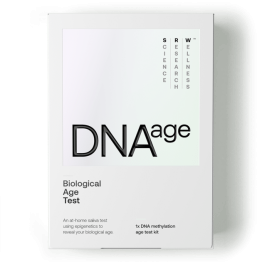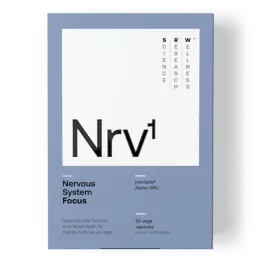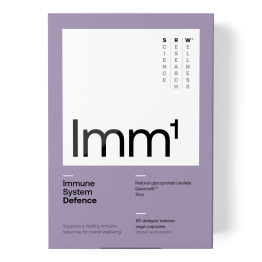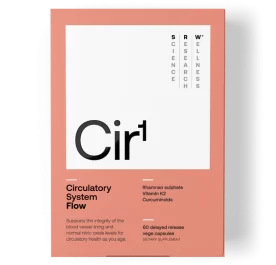How to Hack Your Happiness Hormones
Have you ever wondered why you feel so good straight after a gruelling HIIT session, why cuddling a puppy makes you feel relaxed, or why eating your favourite dessert instantly puts a smile on your face? All this and more happens because there’s some chemical rewiring going on in your brain.
We humans have four happiness hormones – dopamine, oxytocin, serotonin and endorphins. Each hormone has a different purpose to serve, and actively doing certain things can trigger either one or all of them. Knowing how to hack these hormones means you can take charge of your own happiness but first, let’s explain what the happiness hormones are.
Dopamine – The Reward Chemical
This is the hormone that’s most notably involved in helping us feel pleasure as part of the brain’s reward system. It’s involved in motivation, memory and attention. Dopamine levels are typically well regulated within the nervous system, but there are some things you can do to naturally increase levels. More about that in a minute.
When dopamine is released in large amounts, it creates feelings of pleasure and reward, which makes you want to repeat what you just did. If your dopamine levels are low, it can cause procrastination, self-doubt and a lack of enthusiasm.
Oxytocin – The Love Hormone
Sometimes dubbed the cuddle or love hormone, oxytocin is a hormone that plays a role in social interactions and bonding. It’s a powerful hormone that acts as a neurotransmitter in the brain. Oxytocin gives you a warm, loving feeling and is partially responsible for a happy mood.
Oxytocin causes feelings of love and closeness, and it’s been associated with generosity and establishing trust. It appears to help reinforce the early attachment between a mother and baby, as well as the bond between lovers. But for all its apparent positivity, psychologists believe that oxytocin plays a rather complex role in human behaviour.
Serotonin – The Mood Stabiliser
In the brain, serotonin helps with mood regulation and memory, but the neurotransmitter also has important jobs in other parts of the body. In fact, most of the serotonin in your body is found in your gut, not your brain, as it is required there to promote healthy digestion.
Serotonin is often called the body’s natural feel-good chemical. Its influence on our mood makes it one of several brain chemicals that are integral to our overall sense of wellbeing. The exact nature of serotonin’s role has been much debated by researchers, but it’s believed to also influence when, how much, and how well you sleep.
Endorphins – Our Natural Pain Killers
Arguably the best known of all four happy hormones are endorphins, our body’s natural pain relievers. They can induce feelings of pleasure or euphoria and instantly boost your mood. Endorphins, which are structurally quite like the drug, morphine, activate opioid receptors in the brain that help to minimise discomfort.
Endorphins are responsible for that feeling you get after a great workout, after eating a piece of dark chocolate, or after having a good laugh with a friend. Without them, the world would seem a lot less colourful and let’s face it, a lot of joie de vivre would be missing from our lives.
How to Up Your Happiness Hormones
What’s less known is that happiness hormones reflect your environment, relationships, diet, exercise regime and even your gut microbes. There are plenty of natural things you can do to increase our own happiness levels, make the most of these natural mood-boosters, and essentially get more out of life.
Maintaining a healthy diet and exercising regularly have been proven to be vital for your brain’s health. Any form of movement that increases your heart rate will prompt a positive feeling, and a vigorous workout can cause a feeling of euphoria.
Spending time outdoors is a great way to boost your endorphins and serotonin levels. A 20-minute walk each day is a great way to start, and if you get bored with the same old sights, you can explore a new area or simply walk a little further.
Oxytocin is released when you engage in caring relationships and have a loving community around you. Having a great romance, investing in caring relationships, engaging in soft, friendly touch or being around animals will all boost your oxytocin levels. Research suggests that yoga may help increase oxytocin production, too.
Sex, retail therapy, achieving a goal, smelling cookies baking in the oven — all these things and more can trigger dopamine release, or give you a dopamine rush. Getting enough sleep, exercising, listening to music, meditating and spending time in the sunshine can also up your dopamine and with that, your happiness levels.
Whatever you do, never underestimate the incredible power of laughter. Having a good laugh decreases stress, improves immune function and generally lifts your spirits. It’s so effective that laughter therapy has been well-established as a cognitive behavioural therapy to treat patients with stress-related issues and depression.
But Wait, There’s More
Not everyone knows that there are more neurotransmitters in our brain that are produced naturally by our body and give us a natural high. One of them is called anandamide, and that’s also known as “the molecule of wonder”.
Anandamide helps to regulate inflammation and neuron signalling. It binds to cannabinoid receptors in the brain and body, stimulating a sense of happiness and mental wellness, not unlike the cannabinoids such as THC derived from cannabis sativa (marijuana). As it is created, it binds primarily with our cannabinoid receptors CB1 and CB2 just as a THC would upon ingestion.
Don’t worry, you don’t have to turn to drugs or bake weed brownies to nurture your natural endocannabinoid system. Essential fatty acids, chocolate, herbs, spices and tea can naturally stimulate the ECS. Stress-reducing activities such as meditation, yoga, massage, acupuncture and breathing exercises have a similar effect.
It’s clear to see that all these hormones or neurotransmitters are involved in promoting a happy mood and positive feelings, so keep it up with your exercise routines, eat nutritious meals with your loved ones, do what you love and avoid stress where you can. You deserve a happy life, so do what you can to help your brain function at its best.





